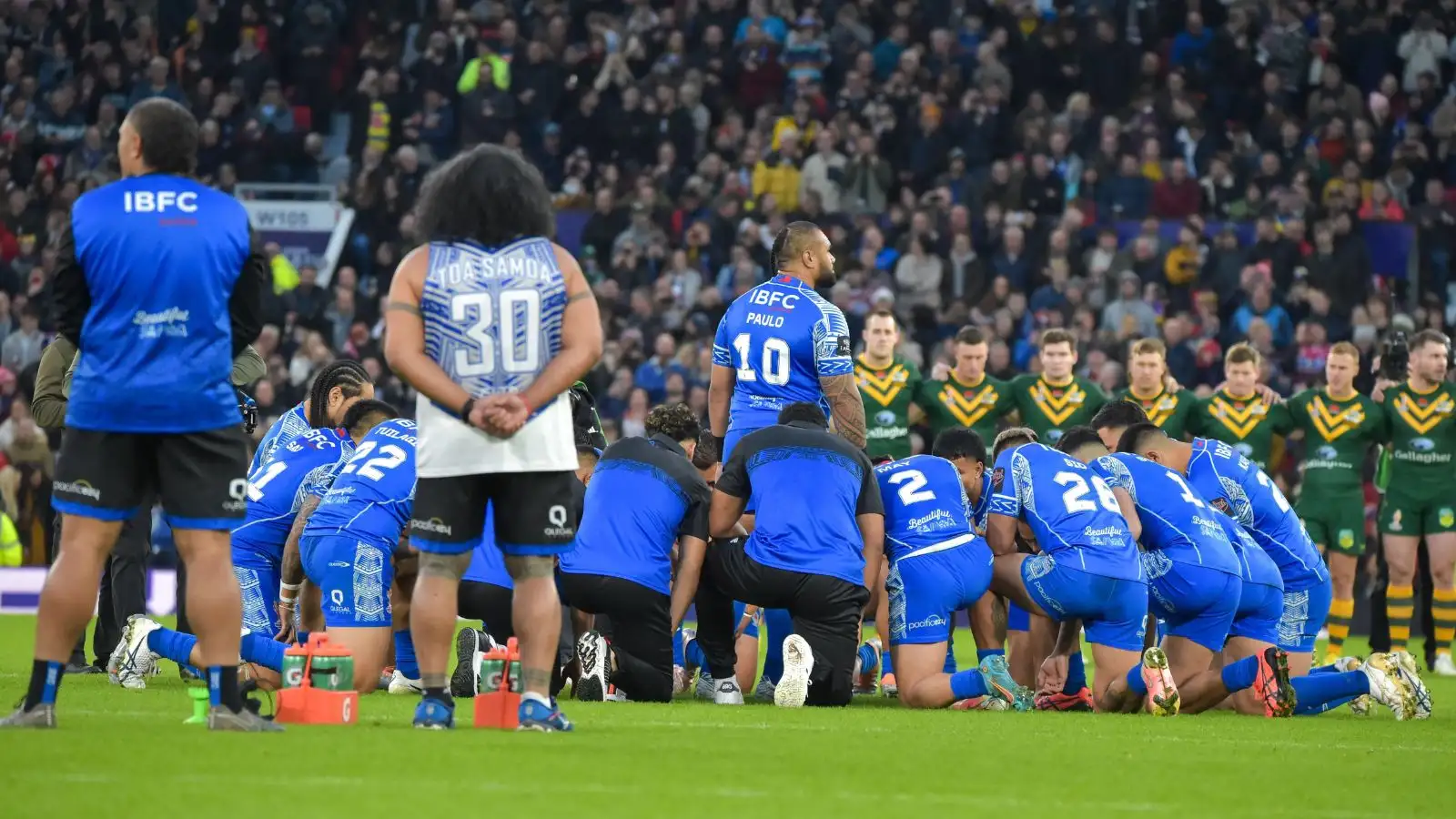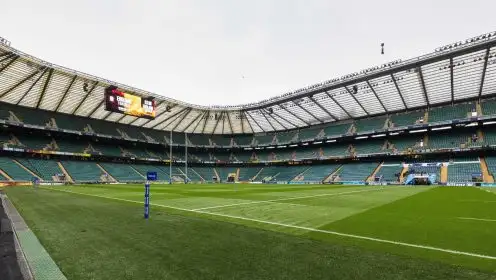Rugby League World Cup 2025 to be delayed; full details announced for new look tournament

Samoa and Australia featured in the delayed 2021 World Cup final at Old Trafford, Manchester. Photo by Craig Cresswell/Alamy Live News.
The 2025 Rugby League World Cup will be delayed by a year and hosted in the southern hemisphere, international rugby league has today confirmed.
The new RLWC2026 is set to comprise 10 men’s, eight women’s and eight wheelchair teams across the tournament, with a decision on the hosting rights to be made by the end of the year.
The eight Men’s quarter finalists from RLWC2021, – Australia, Samoa, England, New Zealand, Lebanon, Papua New Guinea, Fiji and Tonga – will automatically qualify for the 2026 Rugby League World Cup, along with the four Women’s and Wheelchair semi-finalists.
The IRL will consult with member nations to design a qualification framework for remaining World Cup berths.
France were due to host the 2025 World Cup, but pulled out in May citing a failure to achieve financial guarantees.
In addition, it has been decided that the following Women’s Rugby League World Cup, after RLWC2026, will be held as a stand-alone tournament in 2028.
The new cycle has changed the Men’s World Cup, with the next tournament after 2026 set to be held in 2030.
RLWC2026 details confirmed
IRL chair Troy Grant said: “The IRL board has made these decisions to create more compelling content and secure the financial future of the international game.
“The cancellation of France 2025 has given us an opportunity to refresh the structure of the World Cup and associated tournaments as part of a long-term international calendar that all in the game have been desperately seeking.
“The Rugby League World Cup is the pinnacle of our sport and an elite tournament that all nations should aspire to take part in.
“With 10 men’s teams at the 2026 and 2030 World Cups, there will be greater focus on Regional Championships and qualifying tournaments.
“The growth of Women’s Rugby League has been at such a phenomenal rate that the IRL Board believes they deserve to have their own World Cup staged as a stand-alone tournament from 2028 onwards.
“With the Men’s World Cup cycle moving back a year, there will now be a World Cup every 24 months, but this is not a set-and-forget international calendar and there will be opportunities to capitalise on the future growth we believe these changes will generate.”
READ NEXT: Sam Tomkins opens door to spectacular England swansong with emotional message to Shaun Wane



